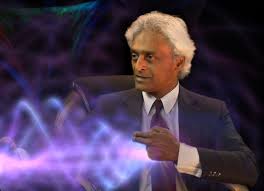A Quote by David Korten
And each of these perspectives comes to the same conclusion, which is that our global economy is out of control and performing contrary to basic principles of market economics.
Related Quotes
My Prime Minister regards the economy as our highest priority and forgets that economics and ecology are derived from the same Greek word, oikos, meaning household or domain. Ecology is the study of home, while economics is its management. Ecologists try to define the conditions and principles that enable a species to survive and flourish. Yet in elevating the economy above those principles, we seem to think we are immune to the laws of nature. We have to put the ‘eco’ back into economics.
I am opposed to all forms of control; I am for an absolute laissez faire, free, unregulated economy. I am for the separation of the state and economics, just as we had separation of state and church, which led to peaceful coexistence among different religions...so the same applies to economics. If you separate the government from economics, if you do not regulate production and trade, you will have peaceful cooperation, and harmony and justice among men.
It's time to admit that public education operates like a planned economy, a bureaucratic system in which everybody's role is spelled out in advance and there are few incentives for innovation and productivity. It's no surprise that our school system doesn't improve: It more resembles the communist economy than our own market economy.
Government control of the economy, no matter in whose behalf, has been the source of all the evils in our industrial society -- and the solution is laissez-faire capitalism, i.e., the abolition of any and all forms of intervention in production and trade, the separation of State and Economics, in the same way and for the same reasons as the separation of Church and State.
As we enter the 21st Century it is clear that we have entered an unprecedented global age in which our diverse cultures, religions, philosophies, worldviews and perspectives encounter one another in the marketplace of our global village. It is now clear that our future sustainability on this planet calls for radical advances in our rational and human capacities to negotiate the powerful forces between worlds as the human family moves towards a sustainable global civilization.
People have a hard time accepting free-market economics for the same reason they have a hard time accepting evolution: it is counterintuitive. Life looks intelligently designed, so our natural inclination is to infer that there must be an intelligent designer--a God. Similarly, the economy looks designed, so our natural inclination is to infer that we need a designer--a government. In fact, emergence and complexity theory explains how the principles of self-organization and emergence cause complex systems to arise from simple systems without a top-down designer.
In short, what the living wage is really about is not living standards, or even economics, but morality. Its advocates are basically opposed to the idea that wages are a market price-determined by supply and demand, the same as the price of apples or coal. And it is for that reason, rather than the practical details, that the broader political movement of which the demand for a living wage is the leading edge is ultimately doomed to failure: For the amorality of the market economy is part of its essence, and cannot be legislated away.




































